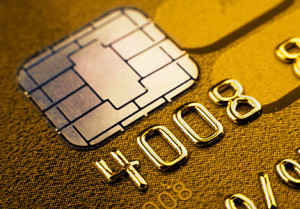Cash & Cards: Managing Your Money in London
 One of the difficult parts of foreign travel is working with different currencies and figuring out how best to pay for everything. Here at home, you’re likely used to just swiping your debit card for everything and carrying very little cash. While you won’t need cash for transportation — you’ll receive an Oyster Card once we arrive that will cover your transportation on the Tube/Underground and on buses — you will still want to keep more cash on you than normal.
One of the difficult parts of foreign travel is working with different currencies and figuring out how best to pay for everything. Here at home, you’re likely used to just swiping your debit card for everything and carrying very little cash. While you won’t need cash for transportation — you’ll receive an Oyster Card once we arrive that will cover your transportation on the Tube/Underground and on buses — you will still want to keep more cash on you than normal.
Most weeks, I stop by a cash machine, pull out £100 and then use that for 3 – 5 days; then I go back and get more. I don’t encourage you to carry more cash than that.
It’s easy to check the current conversion rate by typing “1 BPS to US” in Google.
Card Options
One significant difference between US debit/credit cards and those of Europe used to be that we used only a “magnetic strip” while most of Europe uses the “chip and pin” system. More recently, US cards come with a “chip and pin.” State Employee’s Credit Union (SECU) uses a chip-enabled card, as does Wells Fargo. Cards without chips still work in the UK, but the person taking your card may look at it funny for a minute.
If you are worried at all about taking your main bank card around London, you might consider getting a special card for travel. No one uses “Travellers’ Cheques” anymore, and you absolutely do NOT want to bring a lot of cash and “exchange” it — those places will rip you off!
SECU offers a “Cash Points Global” card. This card is not connected to your banking account, so if it’s lost or stolen, no one could get more money than is on the card. You (or your parents) can also add funds to the card at any time, so you might find this option interesting.
Personally, I (Dr. Banks) use Wise (formerly TransferWise). This “bank” allows me to add funds from my US banks whenever I want; I can then convert that money in the app from US dollars to British pounds and tap-to-pay using my watch or iPhone everywhere in the UK without getting any foreign transaction fees. I’ve used it for several years now; they will also send you a plastic card to use in ATMs or instead of your phones. I’ve found it a great option that’s cheaper and quicker while abroad. You can also convert to many different currencies so if you are going to the UK but also heading to Europe after or during the trip, this option lets you move money from dollars to pounds to euros so you can easily spend wherever you go.
Financial Security
Regardless of whether you get “burner” cards like the two above or you bring and use your own debit and credit cards, you must be careful. For any of your own cards that you bring, be sure to call your bank/credit card company and tell them that you are traveling. You may find that your card has special options for international travel, but you’ll also want to know how much your bank/card charges you for international purchases. Those fees can add up quickly! SECU suggests the following when you travel using their cards:
Important Traveling Tips
- Notify the Credit Union of extensive domestic and/or international travels
- Inquire about potential international fraud blocks before you travel*
- Test your card to confirm that you have the valid PIN
- Verify that your card will not expire while traveling
- Carry alternative payment methods (i.e. additional debit/credit cards)
- Do not pack all payment methods together (i.e. one in a suitcase, another in a purse or wallet)
- Remain observant for pick pockets
- Photocopy all cards front and back and keep copies on hand

